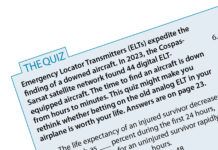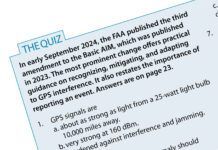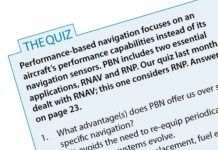You’re flying along under IFR, and ATC says, “Possible pilot deviation. Advise you contact Center. Advise when ready to copy phone number.” You have just received a “Brasher” warning. See if you know what to do.
© 2025 Firecrown Media Inc. All rights reserved.





